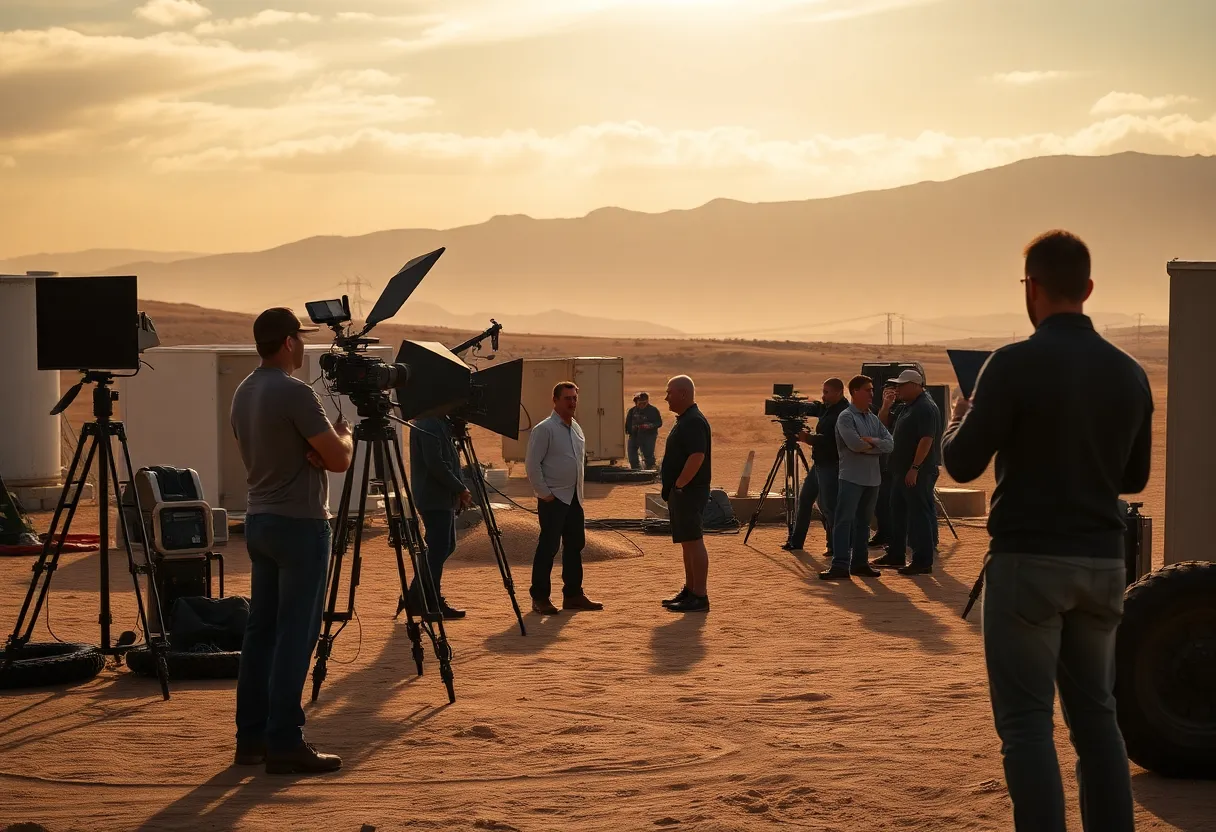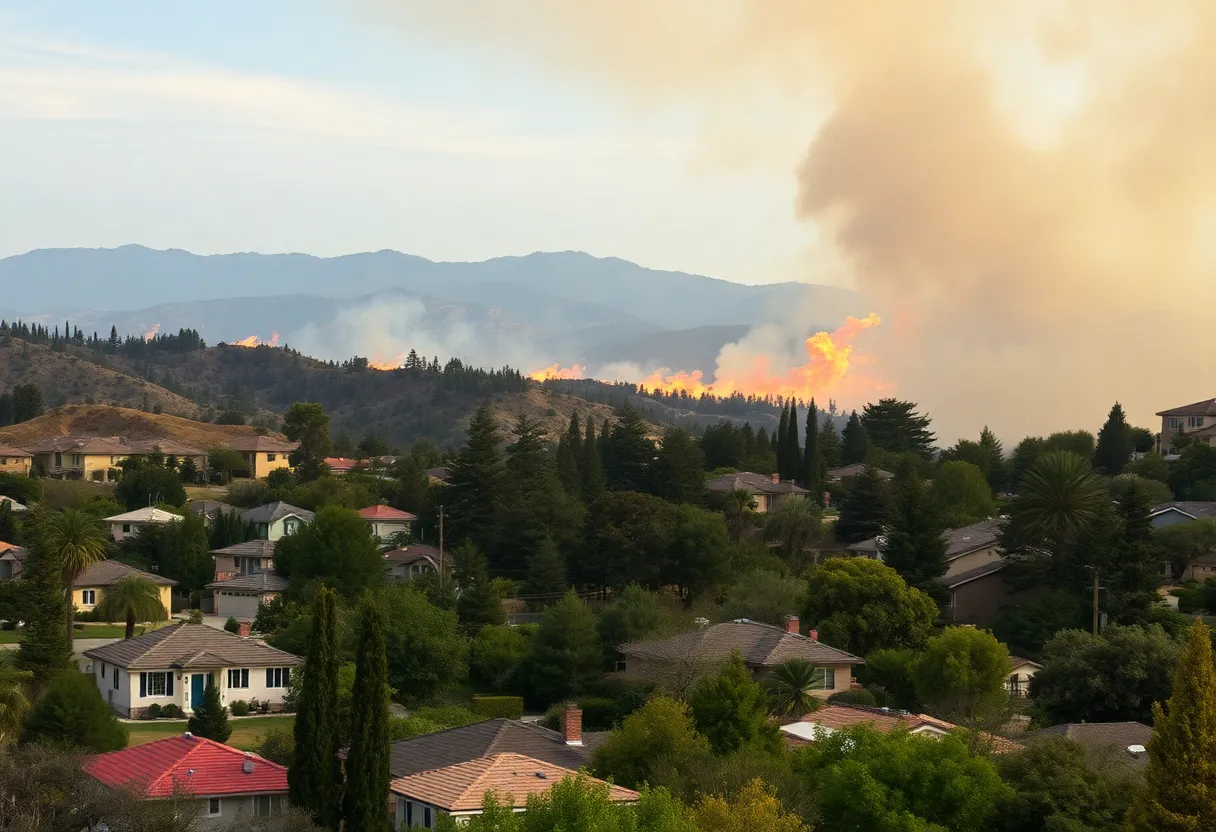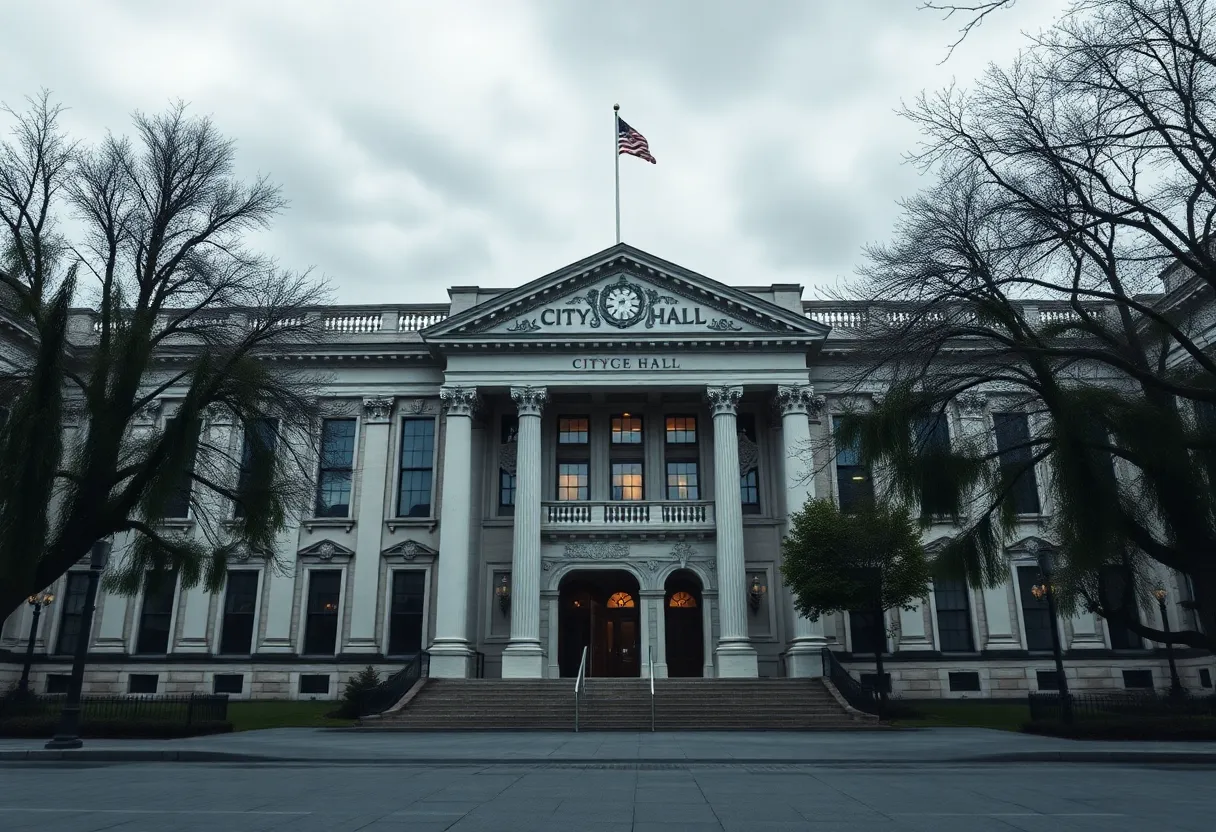News Summary
California’s film industry faces a crisis as Governor Gavin Newsom clashes with President Donald Trump over tariffs on foreign films and proposed tax credits. Newsom advocates for a substantial increase in the state’s film tax credit to support local production and jobs, while Trump insists on 100% tariffs to protect American cinema. Amid a significant decline in film production, the outcome of this rivalry could determine the industry’s future in the state.
California is at the center of a heated dispute between Governor Gavin Newsom and President Donald Trump concerning the future of the film industry in the state. The clash has unfolded in light of Trump’s proposal for a sweeping 100% tariff on films produced outside the United States, prompting Newsom to advocate for a substantial film tax credit to strengthen local jobs and production.
In a recent statement on X, Newsom asserted that California is the birthplace of the film industry and is prepared to “bring even more jobs home.” He stressed the importance of a federal partnership to revitalize American cinema, which he commented on with the phrase “Make America Film Again.” The governor’s proposals follow a disturbing trend in the U.S. film sector, which has been grappling with difficulties, including the aftermath of the COVID-19 pandemic and recent strikes in Hollywood during 2023.
According to the latest figures, film production levels have yet to recover from their pre-pandemic high, showing a marked 22% decline in the first quarter of 2025 compared to the previous year. This significant drop underscores the urgent need for both state and federal support to reinvigorate the film industry.
Last year, Newsom, alongside Los Angeles Mayor Karen Bass, suggested increasing California’s annual film tax credit from $330 million to $750 million. This proposal was intended to counter the challenges facing the film sector, which many believe are exacerbated by Trump’s recent tariff plan. The president has publicly criticized Newsom’s management of the film industry, going as far as to label him “grossly incompetent” during an Oval Office meeting with Canadian Prime Minister Mark Carney, attributing the industry’s struggles to foreign competition and Newsom’s purported negligence.
Trump has stated intentions to meet with film industry executives to rally support for his tariffs, which he claims are necessary to protect American films from what he describes as a “national security threat” posed by foreign productions. The president argues that these films disseminate problematic messages in American theaters, asserting that American cinema is “DYING a very fast death” due to such competition.
This ongoing conflict has stirred reactions across various sectors, particularly following Trump’s comments, which contributed to declines in the stock market for the entertainment industry. Notably, major studios such as Lionsgate and Warner Bros experienced significant stock drops. Critics argue that imposing tariffs may worsen the industry’s plight instead of aiding it and have emphasized the need for enhanced tax incentives as a way forward.
Nationally, film tax incentive programs currently operate on a state-by-state basis without a cohesive federal program. California’s existing tax incentives, which stand at $330 million annually, face the possibility of a substantial increase through Newsom’s proposed $7.5 billion federal tax incentive scheme — a move that would mark the largest single government subsidy for the film industry in U.S. history.
California Senator Adam Schiff has expressed his support for a federal film tax credit plan while condemning Trump’s tariff proposal. The film industry community has also voiced divided opinions on the issue, with late-night television personalities Jimmy Kimmel and Jimmy Fallon openly mocking the rationale behind Trump’s tariffs.
In his critique, Trump did not limit his comments to the film industry alone; he also addressed California’s High-Speed Rail project, citing its cost overruns and questioning its management under Newsom. He further challenged Newsom to run for president, implying that California’s issues could hinder his political endeavors.
The ongoing clash between Newsom and Trump highlights the critical crossroads at which the film industry currently finds itself. As California grapples with the repercussions of both the pandemic and fierce competition from foreign markets, the proposed measures by both leaders may well decide the industry’s future trajectory in the state and beyond.
Deeper Dive: News & Info About This Topic
- CBS News
- The Guardian
- The New York Times
- Variety
- Hollywood Reporter
- Wikipedia: Film Industry in California
- Google Search: California film industry news
- Google Scholar: film tax credit California
- Encyclopedia Britannica: Film
- Google News: Trump Gavin Newsom film tariffs

Author: Anaheim Staff Writer
The Anaheim Staff Writer represents the experienced team at HEREAnaheim.com, your go-to source for actionable local news and information in Anaheim, Orange County, and beyond. Specializing in "news you can use," we cover essential topics like product reviews for personal and business needs, local business directories, politics, real estate trends, neighborhood insights, and state news affecting the area—with deep expertise drawn from years of dedicated reporting and strong community input, including local press releases and business updates. We deliver top reporting on high-value events such as major conventions at the Anaheim Convention Center, including NAMM and VidCon, exciting games at Angel Stadium and Honda Center, and developments at Disneyland Resort Our coverage extends to key organizations like the Anaheim Chamber of Commerce and Visit Anaheim, plus leading businesses in hospitality, entertainment, and innovation that power the local economy As part of the broader HERE network, including HERECostaMesa.com, HEREHuntingtonBeach.com, HERESantaAna.com, and HERELosAngeles.com, we provide comprehensive, credible insights into Southern California's dynamic landscape.




